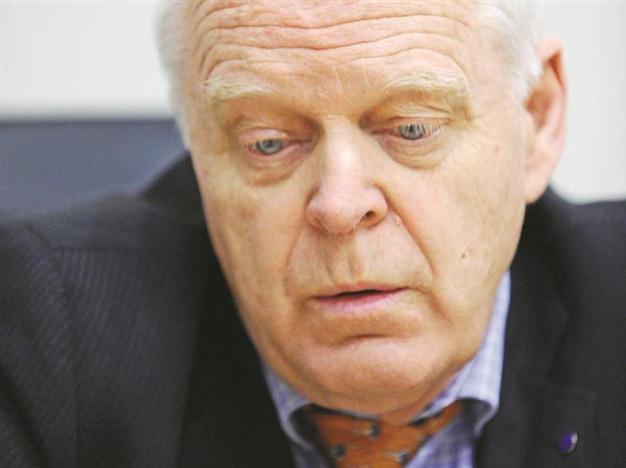Judiciary in Turkey under European fire
Cansu Çamlıbel Hürriyet

Thomas Hammerberg says the Turkish judical system needs a radical overhaul. DAILY NEWS photo, Emrah GÜREL
A top official from the Council of Europe has heavily criticized Turkey’s judicial system and urged the country to stage a “radical overhaul” rather than conduct limited reforms.“Progress is certainly possible but it will require a radical overhaul of the whole system. It will demand education and training of the judges and the prosecutors as there is an issue of eradicating old habits,” Council of Europe Commissioner for Human Rights Thomas Hammarberg recently told daily Hürriyet in Istanbul.
The government announced plans this week to speed up the judicial process but Hammarberg said the new laws would be insufficient on their own.
“It will take a bit of time,” said the commissioner, urging instead a complete change in mentality.
“The procedures are too lengthy and some indictments are of such low quality it is difficult for the judges to understand what is meant,” said Hammerberg.
The recent ruling in the Hrant Dink murder case was also on the official’s agenda. “When it comes to the Hrant Dink and Ergenekon cases, the energy invested in detaining people has been much more obvious in the case of Ergenekon in comparison to Dink,” said Hammarberg, who participated in a public commemoration of the late Armenian-Turkish journalist on Jan. 19, the fifth anniversary of the murder. “So few have been charged and sentenced, indicating there was a broader base for this conspiracy.”
On Jan. 17, a court sentenced one conspirator to life in prison for Dink’s murder but acquitted another. The court also failed to investigate state officials’ alleged links with the murder and ruled that no organized terror networks were behind the hit, angering people from all sides of the political spectrum.
Hammarberg said Turkey might be sentenced by the European Court of Human Rights in Strasbourg if the Dink verdict was approved by in an appeal.
“There is still an emphasis on the role of the state. Of course the situation is particularly sensitive in a case where there is involvement of officials from the state side as well as ordinary individuals,” he said.
The need for authorities to obtain permission before putting a civil servant on trial “is a reflection that there is something wrong in the justice system which needs to be addressed.”
When asked about the arrest of former Chief of General Staff Gen. İlker Başbuğ, the commissioner said long detention periods were a major problem for the Turkish judicial system.
“The implementation of detention before sentencing should be absolutely exceptional,” Hammarberg said. “We feel the issue is not only the length of detentions but whether there should be any detention at all. Detentions before a sentence is served should only be utilized when there is an extreme risk the person will disappear or would put pressure on the witnesses if they were free, for example. But that is not the situation in majority of the cases.”
















